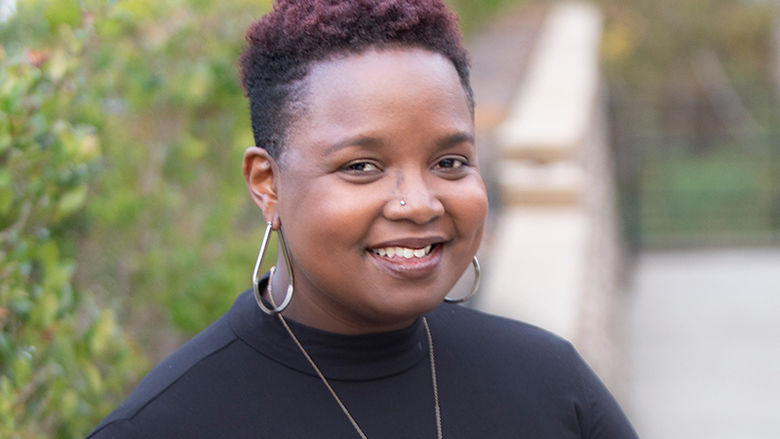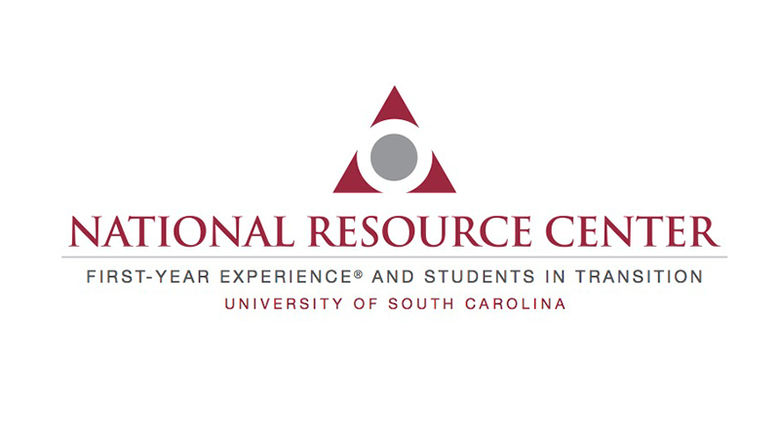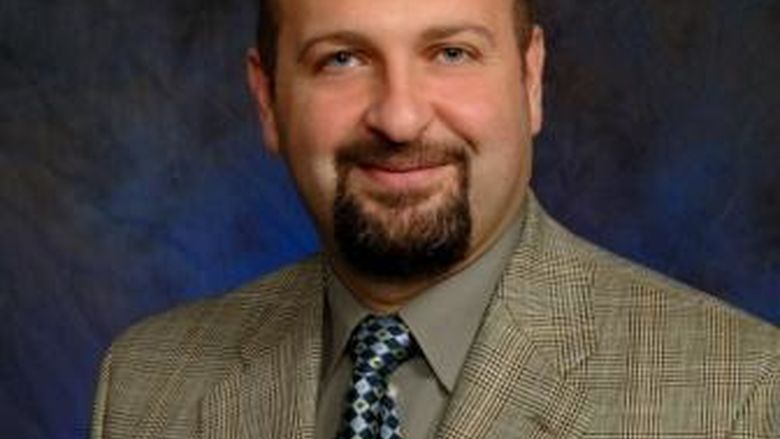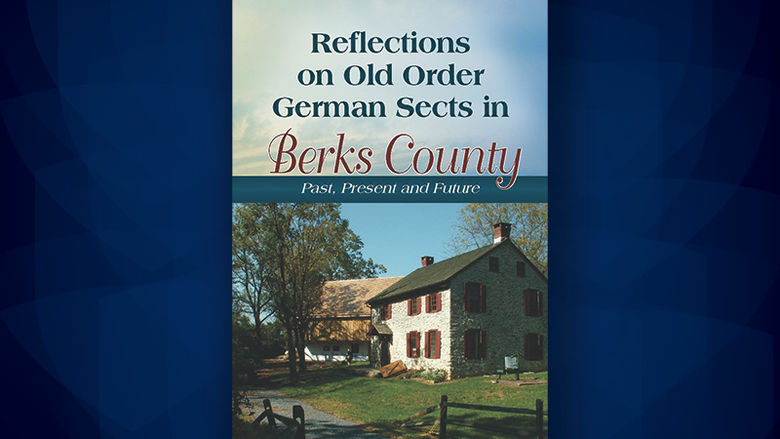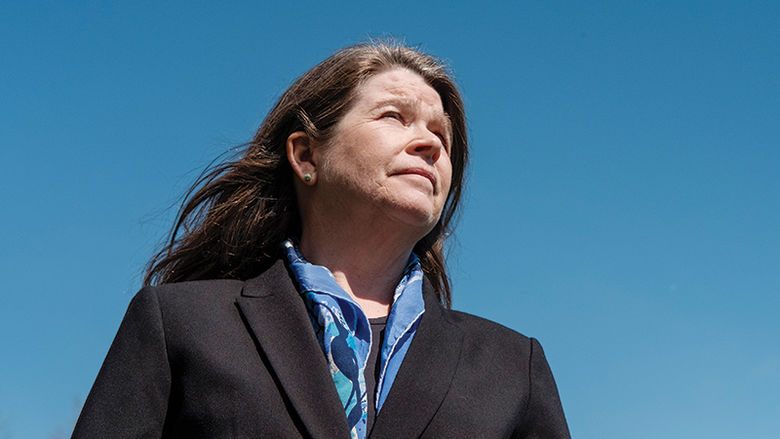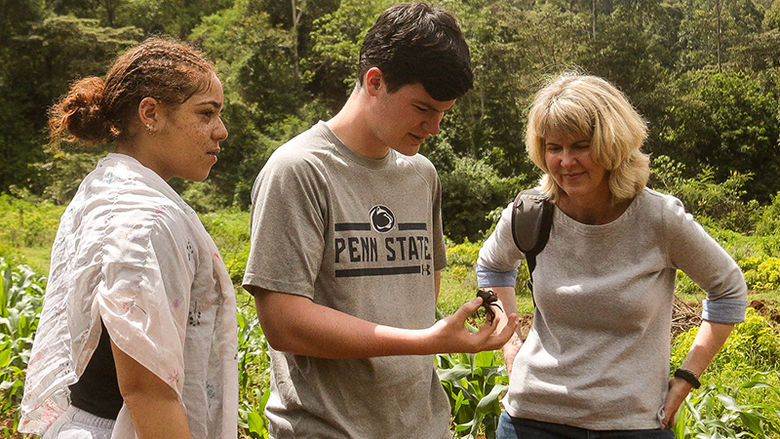
WYOMISSING, Pa. — “Engineering Ahead has helped prepare me for the challenges to come at Penn State,” explained Nicolas Molignoni, a first-year student from Denver, Pennsylvania. “The online format has still allowed me to form relationships with other students and faculty before fall classes have even started. This program has made me ready and excited to be a part of the Penn State community.”
Penn State Berks is helping a future generation of engineering students to succeed through the college’s Engineering Ahead program. The goal of the four-week summer “bridge” program, which is being delivered remotely from June 28 to July 24, is to increase retention rates among a diverse group of engineering students by enhancing academic preparedness.
Ryan Hassler, Engineering Ahead coordinator and associate teaching professor of mathematics at Penn State Berks, explained the value of the program. “Engineering jobs are in very high demand, however there are not enough graduates to fill the need. The problem is two-fold: recruitment and retention. Only 1 to 2.5% of secondary students are interested in STEM subjects. Of the 60% of students who earn an engineering degree, only 12% are from underrepresented populations.”
Students from a variety of academic backgrounds come from the tri-state area (Pennsylvania, New York and New Jersey) for apply for a seat in the free program. This year’s 22 student cohort plans to major in various disciplines, including aerospace, architectural, biomedical, civil, computer science, electro-mechanical and mechanical engineering.
Daily schedules include intensive math “boot camps” focused on pre-calculus, problem-solving exercises, facilitated tutoring sessions, faculty and external speaker presentations on a variety of topics, and discussion of the course textbook, "Atomic Habits" by James Clear. The program also covers such subjects as the scientific method, technology and career exploration.
Addie Douglas, Bronx, New York, plans to major in aerospace engineering. She stated, “I’m really glad I took this program because if not, I would have been blindsided walking into college. The purpose of this program is to strengthen our math skills to help us get on track and it did just that. It also is exposing us to great connections — to alumni and staff -- and giving us tips on how to do well in college.”
“The Engineering Ahead program gave me a glimpse into what a college course could look like. With the many speakers we've had — from current students to professors to successful alumni — it was a motivator and an eye-opener,” adds Jayden Haley, Enola, Pennsylvania
In addition to Hassler, the Engineering Ahead program team includes Dawn Pfeifer Reitz, assistant teaching professor of communication arts and sciences, and Sonia Delaquito, coordinator of the college’s learning center.
“… In times of uncertainty and unrest in our society, I am encouraged by the commitment that these incoming Penn State Berks students have shown to becoming future engineers tasked with solving some of our world’s greatest problems.”
— Ryan Hassler, Engineering Ahead program coordinator
Two former participants have returned this year as program assistants: Nicolas Cassa, a junior electrical engineering major; and Jacob Vanisko, a sophomore mechanical engineering major. They are joined by student mentors Rohan Bhatt, a senior mechanical engineering major; Odesha Williams, a senior biochemistry and molecular biology major; and Emily Reitz, a junior Spanish major.
When asked why he returned to the program as an assistant, Cassa explained, “When I graduated high school, I thought I was prepared for anything college could throw at me. Then I got a letter from Dr. Hassler advertising the Engineering Ahead program and it seemed like a good way to spend my summer, so I applied for a spot in the program. It opened my eyes to how much I did not know and what I still needed to do before my first semester, and that is why I came back to it. I wanted to help incoming Penn State students have the best experience possible in their first year. Without Engineering Ahead, my Penn State career would have been a much less enjoyable experience.”
For Rohan Bhatt, originally from India, the opportunity to work as a mentor was exciting. “I love inspiring and helping peers explore the field of science. I hope we all together can expand the horizons of knowledge for mankind.”
The program helps participants to prepare for the rigors of math courses while giving them an opportunity to meet fellow engineering students; attend workshops on study skills, time management, and career planning; and get to know the campus and the professors. In addition, they work with a peer mentor, an upperclass engineering or science major. They also hear presentations from Penn State engineering alumni such as Melissa Daniels Foster, chief engineer for ExxonMobil Chemical.
In addition, Engineering Ahead also provides a support system through a first-year seminar where students continue their transition to college as a group, a second semester continuing education course, and finally, access to the Jump Start Sophomore Bridge program at University Park campus.
The Engineering Ahead program at Penn State Berks is the result of a grant that University Park submitted titled “Sustainable Bridges from Campus to Campus: Retention Models for Transitioning Engineering Students,” funded by the National Science Foundation.
Penn State Berks was one of four campuses to receive NSF funding for the summer bridge program, which began in 2016. The grant is a collaborative effort between the Penn State College of Engineering at University Park and three Penn State campuses: Abington, Altoona and Berks. Among the Penn State campuses, these three have the largest populations of racially underrepresented engineering students (45% of the total). Additional funding has been provided by industry sponsors including ArcelorMittal, Boeing and Bosch Rexroth.
“This year’s students are to be commended for their hard work and effort, despite being thrown the curve ball of the completely remote environment. In times of uncertainty and unrest in our society, I am encouraged by the commitment that these incoming Penn State Berks students have shown to becoming future engineers tasked with solving some of our world’s greatest problems.”
For more information about the Engineering Ahead program at Penn State Berks, contact Hassler at 610-396-6034 or via email at rsh14@psu.edu.
